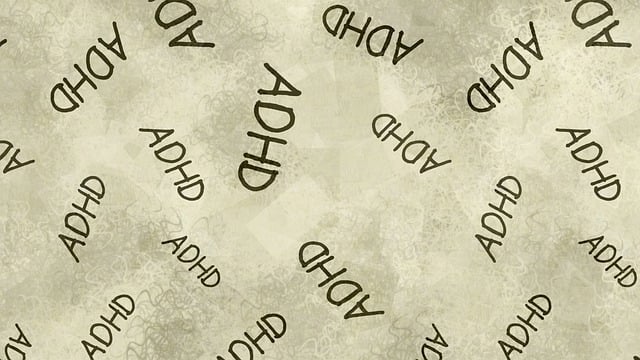Crisis Intervention Team (CIT) training equips professionals with comprehensive skills to support individuals in mental health crises, including specialized programs for postpartum depression in Littleton. These programs enhance community awareness, reduce stigma, and promote proactive emotional regulation among new mothers. Through education on mental health disorders, suicide prevention, de-escalation techniques, and communication skills, CIT training enables participants to handle crises effectively while waiting for professional help. The Littleton Postpartum Depression Therapy program combines therapy with tailored trauma support services, empowering women with resilient coping strategies for improved well-being.
Crisis Intervention Team (CIT) training programs are vital in equipping communities with the skills to support individuals facing mental health crises, especially those struggling with postpartum depression. This comprehensive overview explores the significance of CIT programs in addressing a growing concern—postpartum depression. We delve into the key components of effective training, highlighting techniques that foster empathy and swift intervention. The article further examines the impact of Littleton Postpartum Depression Therapy, showcasing how community support systems can revolutionize care.
- Understanding Crisis Intervention Team (CIT) Training: A Comprehensive Overview
- The Role of CIT Programs in Addressing Postpartum Depression
- Key Components and Techniques Taught in Effective CIT Training
- Benefits and Impact of Littleton Postpartum Depression Therapy within Community Support Systems
Understanding Crisis Intervention Team (CIT) Training: A Comprehensive Overview

Crisis Intervention Team (CIT) training programs are designed to equip professionals with the skills needed to support individuals facing mental health crises. This comprehensive overview delves into the essential components of CIT training, which go beyond basic first aid for mental health emergencies. The program focuses on building a supportive environment and fostering effective communication strategies to de-escalate situations, ensuring everyone’s safety.
In today’s demanding healthcare landscape, Burnout Prevention Strategies for Healthcare Providers are integrated into CIT training, emphasizing the importance of self-care and compassion. Mental Health Education Programs Design plays a pivotal role in preparing teams to navigate complex scenarios with empathy. Additionally, Compassion Cultivation Practices are taught to enhance emotional resilience and foster deeper connections during crisis interventions, making these programs a valuable resource for communities, especially those dealing with issues like Littleton Postpartum Depression Therapy.
The Role of CIT Programs in Addressing Postpartum Depression

Crisis intervention team (CIT) programs play a pivotal role in addressing postpartum depression, a condition that often goes overlooked yet significantly impacts new mothers. These specialized training initiatives equip civilians with the skills to recognize and respond to perinatal mood disorders, ensuring timely interventions for those struggling in silence. By fostering emotional awareness and enhancing support networks, CIT programs break down barriers to access, encouraging help-seeking behaviors among affected individuals.
In Littleton, for instance, postpartum depression therapy has seen substantial growth thanks to robust CIT program implementations. Through comprehensive training, community members gain the confidence to identify subtle signs of distress and provide necessary assistance, thereby promoting early detection and effective management of this complex mental health challenge. Public awareness campaigns development within these programs further highlights the importance of emotional regulation during the postpartum period, ultimately reducing stigma and encouraging proactive support for new mothers.
Key Components and Techniques Taught in Effective CIT Training

Effective crisis intervention team (CIT) training programs are meticulously designed to equip participants with essential tools and knowledge for managing and preventing crises. The key components typically include education on various mental health disorders, suicide prevention strategies, de-escalation techniques, and communication skills tailored to high-pressure situations.
These programs often emphasize the importance of public awareness campaigns development and mental health education programs design as crucial elements in identifying potential crises early. Participants learn crisis intervention guidance that enables them to offer immediate support while waiting for professional help. The training also covers post-crisis care, ensuring a holistic approach to treatment similar to what one might find in Littleton postpartum depression therapy services. By combining these components, CIT training equips individuals to handle emotional and psychological emergencies effectively.
Benefits and Impact of Littleton Postpartum Depression Therapy within Community Support Systems

The Littleton Postpartum Depression Therapy program has been a beacon of hope for many new mothers navigating the challenges of perinatal mental health. This innovative approach recognizes that supporting women during this critical period requires a multifaceted strategy, integrating therapy with community support systems. By fostering a sense of belonging and cultural sensitivity in mental healthcare practice, the program addresses the unique needs of diverse populations.
The impact is profound, enabling participants to tap into their inner strength development while receiving trauma support services tailored to their experiences. This holistic approach not only alleviates symptoms of postpartum depression but also empowers women to build resilient coping strategies. The integration of community-based interventions ensures that these critical services reach those who might otherwise face barriers to accessing mental healthcare, ultimately improving overall well-being and fostering healthier families and communities.
Crisis intervention team (CIT) training programs, such as the innovative Littleton Postpartum Depression Therapy, play a pivotal role in equipping communities with essential tools to address mental health crises, particularly postpartum depression. By integrating comprehensive CIT training that focuses on evidence-based techniques and community support systems, we can enhance early interventions and improve overall well-being. These programs not only empower individuals to recognize and respond to distress signals effectively but also foster a supportive environment where those facing mental health challenges receive the care they need.














